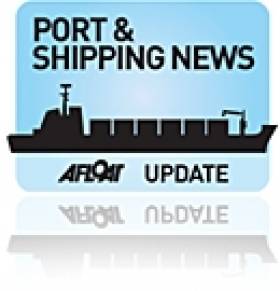Displaying items by tag: Ghana Ports and Harbours Authority (GPHA)
Dublin Port Company assist in “Train-For-Trade”
The training programme, also sought to foster economic development and was facilitated by the United Nations Conference on Trade and Development (UNCTAD) , Dublin Port Company experts and local experts from the Ghana Ports and Harbours Authority (GPHA).
Mr. Nestor Galley, the Director-General of GPHA, thanked UNCTAD, Irish Aid and Dublin Port Company for extending the training programme to Ghana and called on all companies at the port to get involved in the project. In addition to ensuring their staff is updated on best practices in port management.
Participants were awarded certificates and were drawn from customs, excise and preventive service (CEPS), MOL Ghana, Ghana Shippers Authority, Ghana Maritime University, Ghana Ports and Harbours Authority (GPHA) and Advanced Stevedoring Company. Other countires involved in the programme include Tanzania, Indonesia, Malaysia and Maldives.
























































